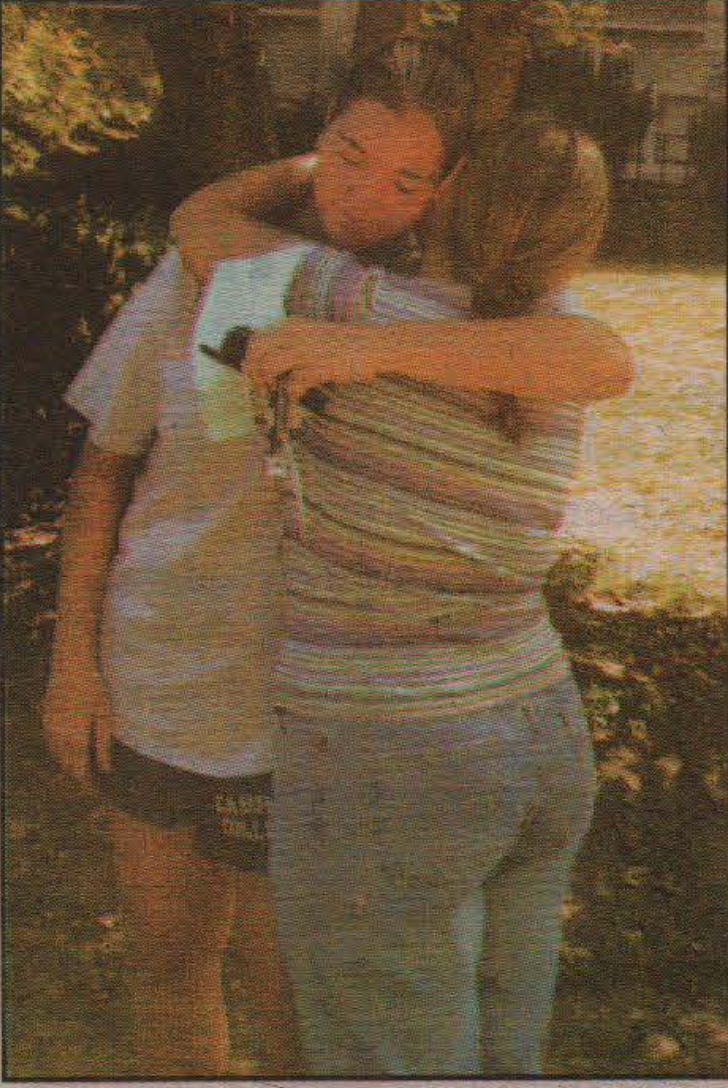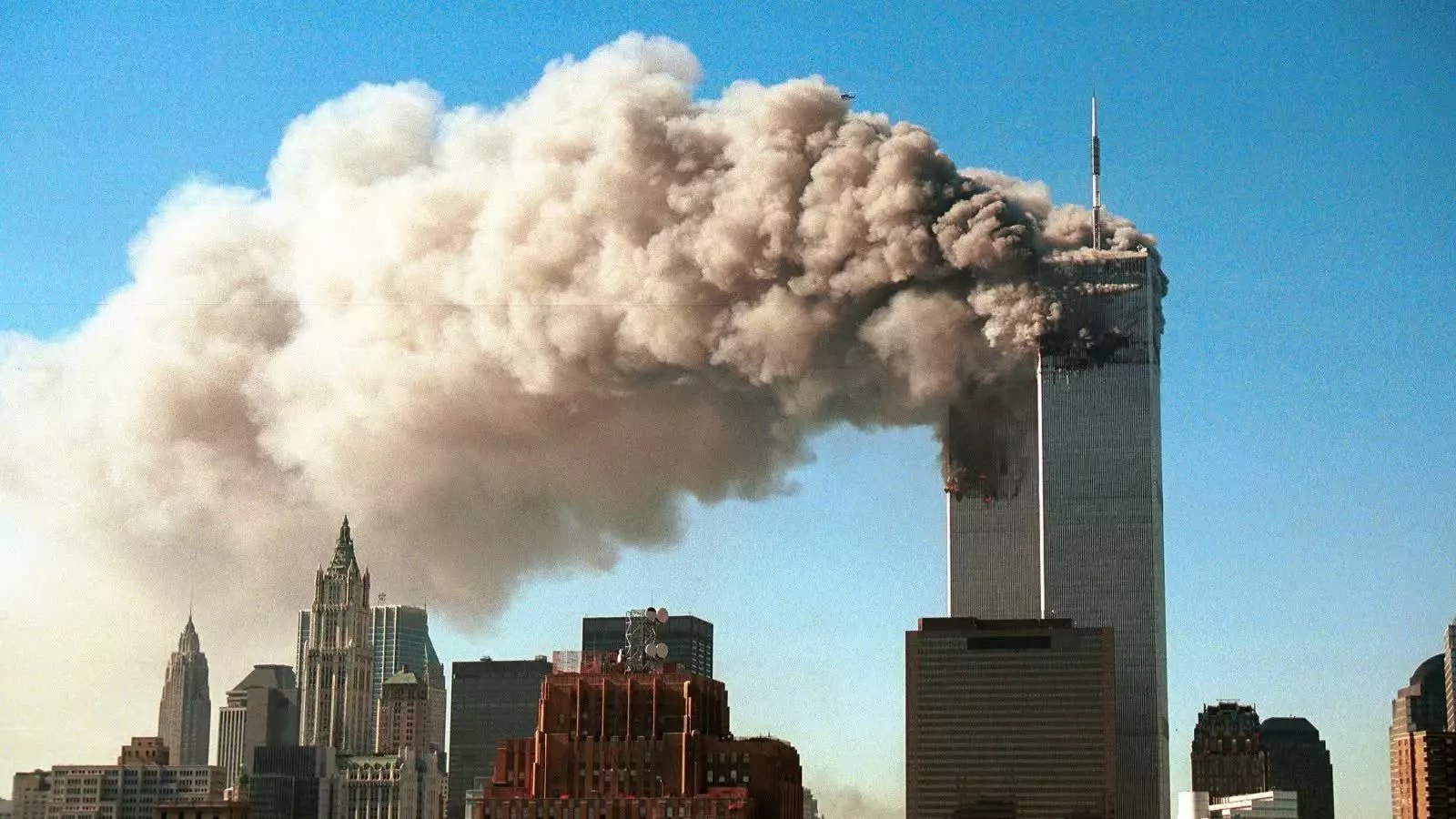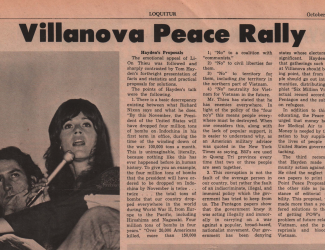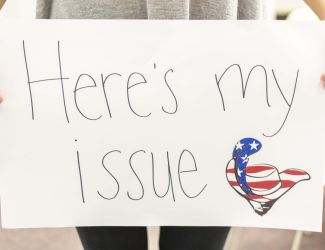As the sun rose on September 11, 2001, Cabrini University’s campus buzzed with the familiar energy of a new academic year. Students hurried to classes, professors prepared lectures, and in the Loquitur newsroom, editors and reporters set about nailing down upcoming deadlines. Little did anyone know that within hours, the once-tranquil campus would be swept by waves of shock and grief.
The Loquitur, like countless newsrooms nationwide, found itself thrust into the forefront, capturing the raw emotions, reactions, and impacts of a day that reshaped history and deeply marked the Cabrini community.
A shocking interruption
At 8:46 a.m., Flight 11 hit the World Trade Center’s North Tower, followed by Flight 175 crashing into the South Tower at 9:03 a.m. As the nation watched in horror, students filled classrooms across campus, already immersed in their morning lectures.
Renee Herrmann, class of 2003 and then-managing editor, recounted the immediate impact of the news on campus. “I went to Dr. [former history professor Joylon Pitt] Girard’s class and he turned the news on and just said ‘You know, we’re going to process this.’”

Herrmann recalled the confusion and numbness in the classroom. “So, we turned it on and the first plane had hit but it was very confusing because like we didn’t know what was going on. Like was it an accident? Did something else happen? And I think we turned it on in time to see the second plane hit.”
Amy Wirth, class of 2003 and Loquitur news editor, said, “I remember once we got to that class, we just watched the whole thing. There were people in the class who have family in New York. One was a COM major our year. Her dad worked in the World Trade Center and it wasn’t until a few hours later that there was confirmation he was okay.”
Vince DeFruscio, class of 2004, and another key staff writer, expressed his determination to cover the unfolding events. “I can remember calling Dr. Zurek and leaving a message. I remember saying, ‘I don’t know if you’re seeing what’s going on, but I want to do the story. I want to work on the story.'”
A race against time
The paper was nearly complete when news of the attacks broke. Realizing the magnitude of the events, the editorial team decided to overhaul the entire issue.
“Pretty much everyone gathered into the newsroom anyway, because it was layout day, and immediately everyone was like, ‘Yep, we’re redoing it.’ There really wasn’t a lot of debate. We knew we were doing it,” Wirth recounted.
The staff swiftly divided responsibilities. Some editors stayed back to make calls and gather information from contacts who had ties to the events, such as alumni in New York. “Everyone handled their different aspects. And we pretty much divided that from the beginning. And then the staff really came together to assist where needed,” Wirth said.
Others, like DeFruscio, captured the raw reactions of students and faculty.
Scramble for information
As news of the attacks trickled in, the atmosphere in the newsroom shifted to urgency and disbelief.
In 2001, the technological landscape was vastly different, presenting significant challenges for the Loquitur newsroom. Without Wi-Fi or smartphones, accessing and verifying news was a cumbersome process. “We did not have TVs in the newsroom at this time, so I remember Renee and [photography editor] Justine DiFilippo lugged their TV from their dorm room,” Wirth recalled.
As Wirth explained, “There was no such thing as the internet. There wasn’t Wi-Fi. We couldn’t log on to watch anything from our computers.”
As the staff scrambled to collect stories and insights, they contended not only with the inherent delays of slower media but also with the flood of unverified and sometimes conflicting reports that characterized early coverage of the attacks.
“We were just in the newsroom all day making calls to people who either had a connection to Cabrini or had gone to Cabrini. I believe the person I spoke to in New York was at Cabrini for a semester and then transferred,” Wirth explained.
Reporting under pressure
Despite these challenges, the Loquitur staff demonstrated remarkable resilience, channeling their focus to the task. “I do know that for a really long time I felt disconnected from it because I just kind of put my focus on reporting and doing it,” DeFruscio reflected.
The team’s commitment to delivering accurate news was unwavering, even as emotions ran high. “Imagine being a college student who already might feel homesick. And then you see that kind of a thing happening. And you’re scared and you’re alone and you’re not with your family,” DeFruscio said. “I really am struck by how serious everybody took it at the Loquitur that day. People recognized the gravity of it and took it seriously and took pride in their work that day. And that’s a tall task for college kids. That’s a tall task for anybody.”
Navigating emotional terrain
DeFruscio vividly remembers the shock that swept through campus. “This was completely out of left field. We just had this sense of security that nothing like that could ever happen in our country. It was just completely like a UFO landing in the middle of Times Square,” DeFruscio said. “It was not supposed to happen. And we had just for decades been bolstered by this false sense of security that we were separate. And we were across an ocean. We were, you know, impenetrable. And we learned that day that we weren’t. And it was a really hard thing to live through.”
For many, the attacks marked a turning point in their lives. Both Herrmann and Wirth found themselves questioning their chosen path.
“That was the day I decided I wasn’t going into journalism anymore,” Herrmann revealed.
However, for DeFruscio, the events of 9/11 solidified his passion for journalism. “It was an honor for me to be able to record that day. That was the validation, like, that’s what I was going to school for. That’s what I wanted to pursue. That’s what I do now,” DeFruscio said. Today, he is executive producer of Good Day Philadelphia.
DeFruscio reflected on the camaraderie that emerged in the face of adversity. “It was an emotionally charged day. Despite the fear and uncertainty, there was a sense of unity among us.”
“I think it’s just part of that heart of Cabrini is that we really rallied around our friends who were from the metropolitan area and made sure that they were okay,” Herrmann said.





